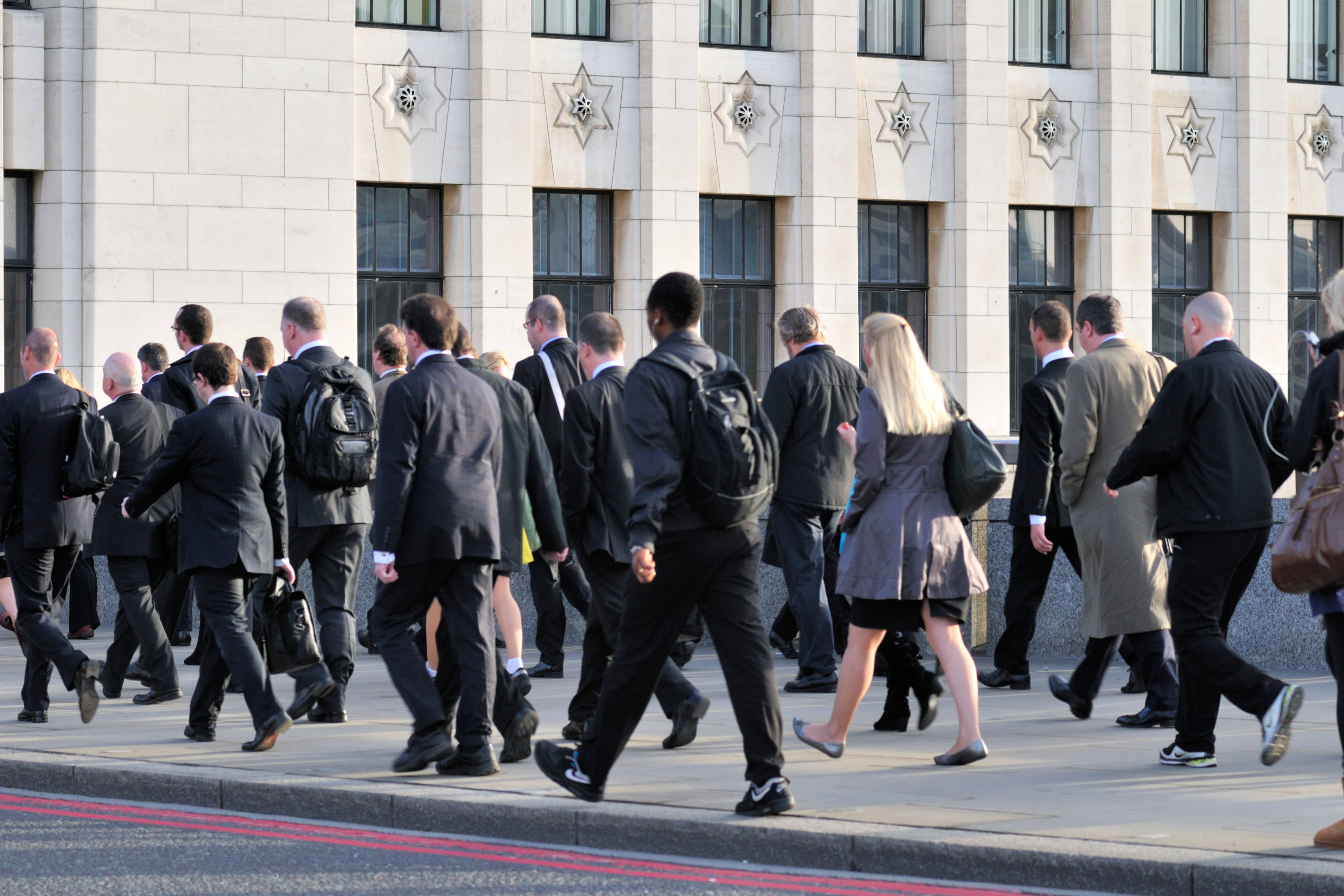Wage growth rebounds but signs point to ongoing jobs market weakness
Official figures show regular earnings growth jumped to 5.2% in the three months to October, up from 4.9% in the previous three months.

Your support helps us to tell the story
From reproductive rights to climate change to Big Tech, The Independent is on the ground when the story is developing. Whether it's investigating the financials of Elon Musk's pro-Trump PAC or producing our latest documentary, 'The A Word', which shines a light on the American women fighting for reproductive rights, we know how important it is to parse out the facts from the messaging.
At such a critical moment in US history, we need reporters on the ground. Your donation allows us to keep sending journalists to speak to both sides of the story.
The Independent is trusted by Americans across the entire political spectrum. And unlike many other quality news outlets, we choose not to lock Americans out of our reporting and analysis with paywalls. We believe quality journalism should be available to everyone, paid for by those who can afford it.
Your support makes all the difference.UK wage growth has risen for the first time in more than a year, but signs point to an ongoing cooling off in the jobs market amid mounting uncertainty following recent Budget measures.
Official figures show regular earnings growth jumped to 5.2% in the three months to October, up from a revised 4.9% in the previous three months and the first time it has risen since August last year.
Earnings growth also outstripped inflation by 3% in the three months to October, with Consumer Prices Index (CPI) inflation taken into account.
The Office for National Statistics (ONS) estimated the number of people on UK payrolls fell by 35,000 to 30.4 million between October and November, although this is subject to revision.
It added that the number of vacancies fell by 31,000 to 818,000 in the three months to November.
Figures showed the unemployment rate remained unchanged at 4.3% in the three months to October, although the ONS added a note of caution given changes to the jobs survey.
It comes as there are fears over an impact on hiring and jobs after the Budget announced steep increases in employers’ national insurance contributions and a minimum wage rise next year.
The figures are also in sharp focus ahead of the Bank of England’s interest rate decision on Thursday, with the tick up in wages reinforcing expectations that policymakers will keep the base rate on hold at 4.75%.
The pound edged higher as the figures signalled that a year-end rate cut was unlikely, up 0.3% at 1.21 euros and 0.1% higher at 1.27 US dollars.
ONS director of economic statistics Liz McKeown said: “After slowing steadily for over a year, growth in pay excluding bonuses increased slightly in the latest period, driven by stronger growth in private sector pay.”
On payrolls, she added: “We have seen annual growth rates continue to slow, showing a consistent trend with our latest jobs data from employers.
“The number of job vacancies has also fallen again, though the total remains a little above where it was before the pandemic.”
Gora Suri, economist at PwC UK, said the rise in earnings growth shows that inflation pressures remain in the economy.
He said: “Despite the considerable disinflation we have seen in the UK economy over the last two years, these underlying inflationary pressures remain.
“This means that the Bank of England is highly likely to keep interest rates on hold at its next meeting on Thursday, before resuming rate cuts in the new year.”
The latest figures show that regular earnings growth in the private sector rose to 5.4% in the three months to October, which is the highest since May.
Public sector pay growth stood at 4.3% in the latest period.
Earnings growth had been falling steadily since reaching a peak in August last year, when regular wages rose by 7.9%.
But while the recent uptick is good news for workers, it shows the pressure on businesses ahead of further significant increases to their wage bills from next April.
Liberal Democrat Treasury spokeswoman Daisy Cooper said: “Over the Christmas period no one should have to worry about the impact that an impending tax rise may have on their employment.
“The new Government must see sense and realise that their self-defeating hike in national insurance will only make the situation worse for health services and high streets.”